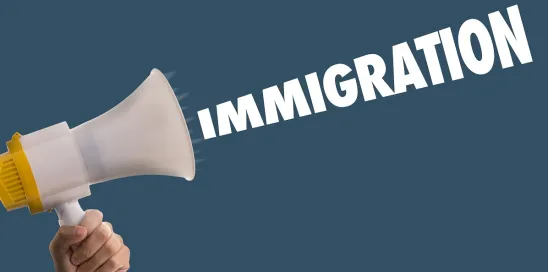While the Administration and Congress work to reconcile the needs of DACA recipients with concerns over border security and illegal immigration, Senators Orrin Hatch (R-UT) and Jeff Flake (R-AZ) have introduced a bill to reform immigration programs for high-skilled workers. If the bill passes, it would go a long way to maintaining U.S. competitiveness in the global economy.
President Donald Trump has long talked about taking a merit-based approach to immigration, and, according to Senator Hatch, the Immigration Innovation Act of 2018 (“I-Squared”) is just that. Hatch said, “As I’ve long said, high-skilled immigration is merit-based immigration, and we need a high-skilled immigration system that works. [I-Squared] will help ensure that our companies have access to the world’s best and brightest . . . .”
Unlike the RAISE Act, sponsored by Senators Tom Cotton (R-AR) and David Perdue (R-GA) and supported by Trump, I-Squared would not cut legal immigration over a 10-year period. Instead, it proposes an increase in programs for high-skilled foreign workers while still protecting U.S. workers.
Some key provisions of I-Squared regarding H-1B visas include:
- Increasing the annual allocation of H-1B visas to a maximum of 195,000, based upon demand;
- Adding an unlimited number of exemptions for those with U.S. master’s degrees if the employer has or will sponsor the employee for a green card;
- Providing work authorization for H-4 dependents where the H-1B spouse has a pending or approved Labor Certification or I-140 and require H-4 employers to certify they will pay the spouse the greater of the actual wage or the prevailing wage;
- Prioritizing adjudication of cap-subject H-1Bs based upon a degree hierarchy;
- Streamlining the H-1B process for employers who file multiple nonimmigrant or immigrant petitions;
- Prohibiting the displacement of U.S. workers with H-1B workers;
- Restricting exemptions for H-1B dependent employers, including many outsourcers;
- Raising prevailing wages; and
- Raising ACWIA fees, based upon employer size and the number of H-1Bs available each year, to promote American ingenuity by using the new funds to increase STEM education funding.
I-Squared also proposes changes in green card programs. Key provisions would:
- Eliminate per country numerical limitations on immigrant visas and recapture unused visas from FY 1992 through FY 2013 to cut the backlogs;
- Increase portability;
- Add 35,000 employment-based conditional immigrant visas; and
- Create dual intent for students to make it easier to apply for green cards from student status.
I-Squared is supported by the high-tech sector, the Society for Human Resource Management, and the U.S. Chamber of Commerce. The U.S. Chamber of Commerce said it is “thankful to Senators Hatch and Flake for introducing the Immigration Innovation Act of 2018. The bill would vastly improve high-skilled immigration to the U.S. by establishing market-based H-1B quotas and instituting various reforms to our employment-based immigrant visa system that would make our nation’s immigration system more merit-based.”
Versions of I-Squared were introduced by Hatch in previous sessions of Congress. Hatch hopes that this time, the bill might be included in the immigration discussions underway regarding DACA.




 />i
/>i
